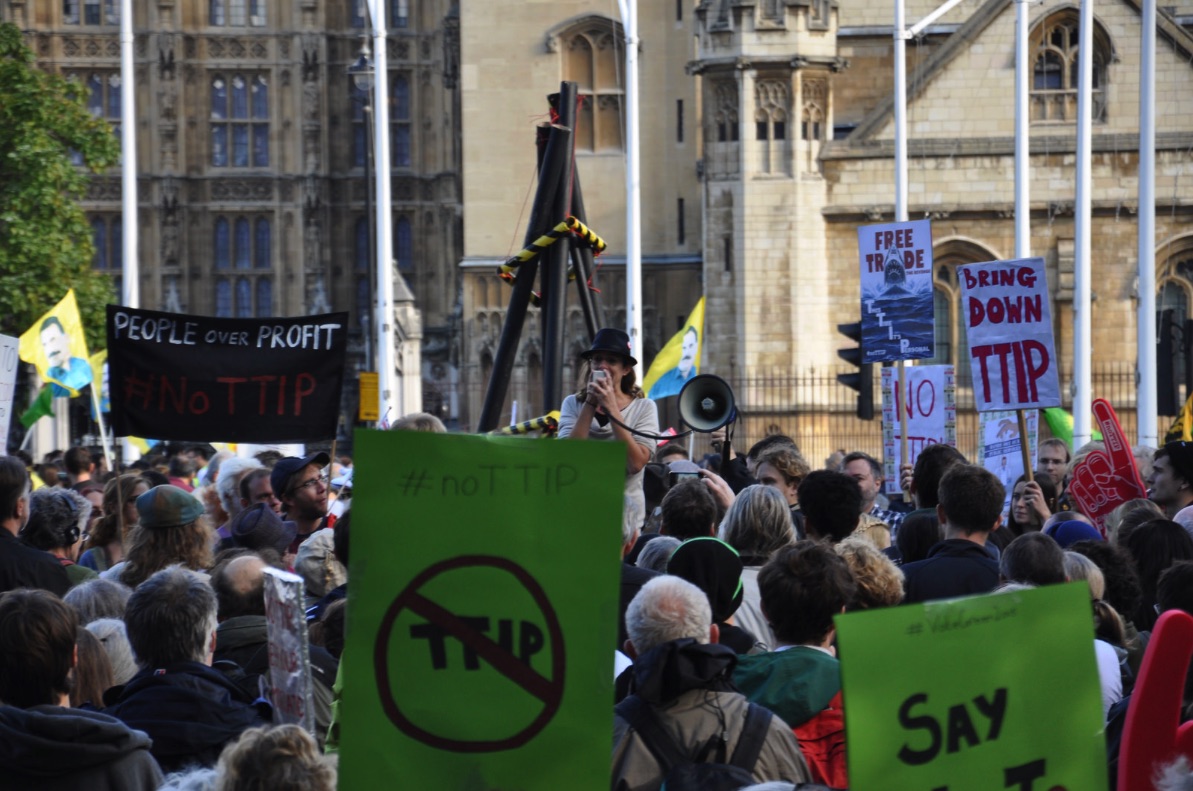TTIP must wait until EU citizens are properly consulted
The Parliament Magazine | 28 April 2015
TTIP must wait until EU citizens are properly consulted
Written by Helmut Scholz
There are a large number of concerns that must be addressed before an EU-US trade deal can become a reality, says Helmut Scholz.
Citizens from across both Europe and the US are concerned about core issues related to the transatlantic trade and investment partnership (TTIP). The areas of concern are those that make TTIP different from a ’normal’ trade agreement - or that make it very "ambitious" in commission speak. These are regulatory cooperation, the tackling of legislative and regulatory barriers to trade and the investor-state dispute settlement (ISDS).
These are also the core reasons behind my group’s rejection of the current TTIP negotiations. Had the deal simply been about tariff reduction with an exception for our sensitive agriculture and some annexes to harmonise industrial standards for cars, negotiations might have proceeded more smoothly.
Did the commission make the effort to find out what European citizens actually want? With this in mind we have tabled an amendment requesting the suspension of negotiations until our citizens have been fully consulted.
TTIP rapporteur Bernd Lange faces a challenging task. He has my respect for presenting a report that addresses a number of the concerns being so widely discussed by our citizens and the media.
If we compare Lange’s draft to the previous report by his former S&D colleague Vital Moreira at the beginning of the TTIP negotiations you can see the differences. Previously, every critical nuance was rigorously suppressed, completely underestimating the public debate that has since been unleashed, with the only response a narrow plenary majority to exclude audiovisual services from the negotiations.
Today every MEP is faced with this debate in his or her constituency, which is reflected in the record number of 14 committees requesting to contribute an opinion, and the 898 amendments tabled in the international trade (INTA) committee.
People understand that TTIP is much more than a trade agreement. It could be a game-changer, affecting various aspects of the lives of EU and US citizens.
Our GUE/NGL amendments include arguments and analysis from trade unions, consumer protection organisations, economists, farmers’ associations, and civil liberties groups, small and medium enterprises, as well as letters from citizens.
They feel that the negotiating mandate received by the commission from member state governments in charge at that time goes too far and that many of those regulations dubbed obstacles to trade are actually societal and democratic achievements.
Consultancies and corporate lobby organisations are pushing for TTIP. Infamous structures like EuropaBio see their chance to finally pave the way for biotechnological products, such as GMOs, into the EU.
Thanks to the public outcry, many of the European commission’s text proposals are now publicly accessible. The proposed chapter on regulatory cooperation is the most problematic.
As part of TTIP every new piece of legislation will be evaluated at early planning stage by an intergovernmental committee - advised by big business - on whether the law might negatively impact on trade and investment.
This week, plenary decides on the fuel quality directive, potentially providing an early example for the commission on giving in to transatlantic demands regarding tar sands. Under TTIP how many controversial drafts would actually make it to legislators’ desks in the future? Would they all be filtered out?
Or take the issue of trade in data. For the US government and some large corporations this is just another tradable resource, but for us and the civil liberties, justice and home affairs committee this is about privacy and the protection of EU citizens.
Unfortunately, the first set of compromise proposals does not take as much expertise on board from the various committees giving their opinion as I would demand. There is high pressure on the rapporteur to deal with the existing majorities in INTA rather than with the voting results of other committees.
I would like to encourage the rapporteur to listen closely to the concerns raised by so many active citizens. The GUE/NGL group will not let them down.
About the author
Helmut Scholz (DE) is GUE/NGL shadow rapporteur on recommendations to the European commission on the negotiations for the transatlantic trade and investment partnership (TTIP)






